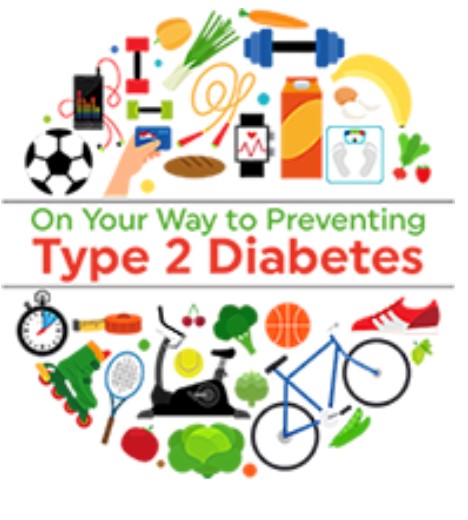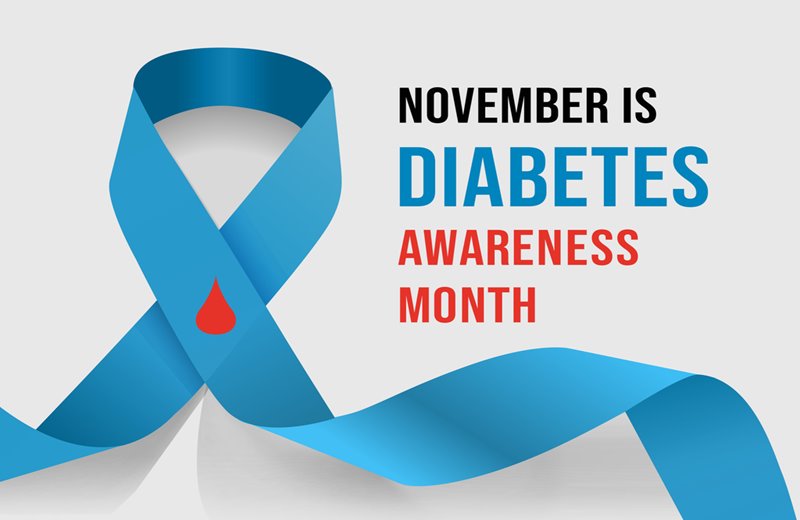~ by Carol Vartuli
November is Diabetes Awareness month. While most people are aware that Type 2 Diabetes is a serious disease, many don’t know about pre-diabetes. This November, the medical community is focused on raising awareness about it. According to the Centers for Disease Control and Prevention (CDC), 88 million Americans (one of every three adults) are living with pre-diabetes, and only a tiny fraction of them know it.
What Is pre-diabetes?
People with pre-diabetes have higher-than normal blood-sugar levels, but not high enough to be diagnosed as diabetes.
The CDC explains the cause of pre-diabetes this way: “Insulin is a hormone made by your pancreas that acts like a key to let blood sugar into cells for use as energy. If you have pre-diabetes, the cells in your body don’t respond normally to insulin. Your pancreas makes more insulin to try to get cells to respond. Eventually your pancreas can’t keep up, and your blood sugar rises, setting the stage for pre-diabetes—and type 2 diabetes down the road.”
Why focus on diabetes in its “pre” stage?
Pre-diabetes is reversible, and intervention can prevent its progression into Type 2 Diabetes.
Type 2 Diabetes, caused by the body’s inability to use insulin properly, is the most prevalent type of diabetes; it accounts for 95 percent of cases.
As we age, the chance of developing Type 2 Diabetes increases. It occurs mostly in people over age 45-- although its prevalence is on the rise in young adults, teens, and children.
Although Type 2 Diabetes can sometimes be managed with a healthy diet and exercise, it is a progressive disease. Over time, your pancreas may not produce enough insulin to keep your blood sugar at normal levels, requiring daily medication or insulin.
Diabetes is a serious disease. High blood glucose damages blood vessels and nerves that control your heart, making diabetic adults nearly twice as likely to die from heart disease or stroke than people without the disease. Uncontrolled diabetes can cause kidney failure, blindness, and amputation.
Fortunately, Type 2 Diabetes usually starts with a pre-diabetes warning sign.
How will I know I have pre-diabetes?
Some of the risk factors for pre-diabetes include:
- Being overweight
- Being 45 years or older
- Having a parent or sibling with Type 2 diabetes
- Being physically active less than three times a week
Although pre-diabetes has no clear symptoms, you can take a simple, 60-second risk assessment from the National Diabetes Association. If you are in a moderate-to high-risk category, discuss it with your physician, who can monitor your blood glucose levels.
Can I prevent pre-diabetes?
YES. Changes in lifestyle can help you lower your risk for, or even reverse pre-diabetes. The CDC offers a free downloadable guide, called On Your Way to Preventing Type 2 Diabetes.

This colorful pamphlet explains "Meaningful Changes that take Minimal Effort," such as recognizing hidden 'empty' calories, and incorporating more movement into your day.
By being aware of pre-diabetes, or reversing it now, you can take the risk of Type 2 Diabetes off your plate.
The information in the above article is not intended nor implied to be a substitute for professional medical advice, diagnosis, or treatment. Always seek the advice of your physician or other qualified health provider with any questions you may have regarding a medical condition.

